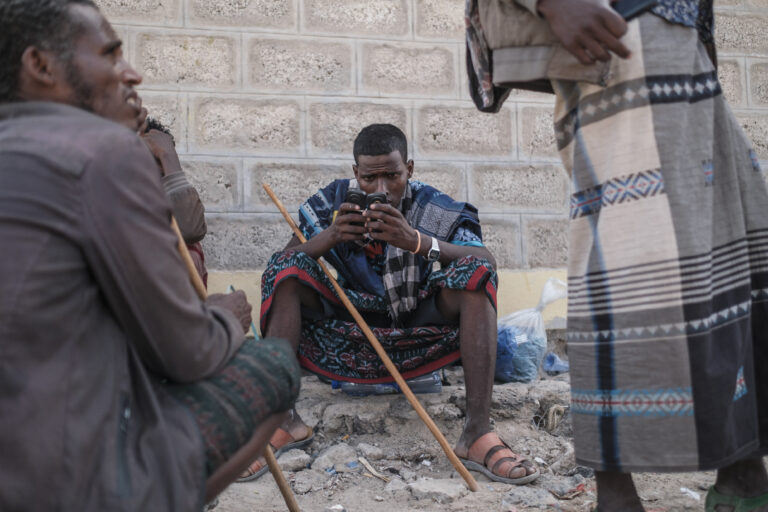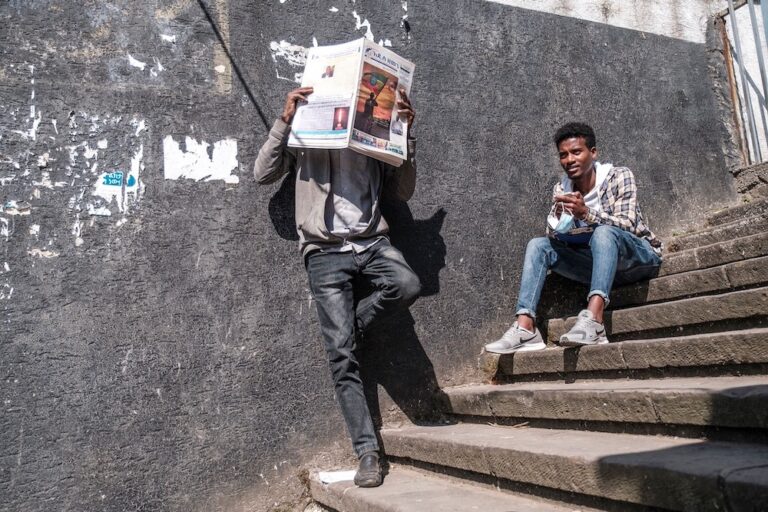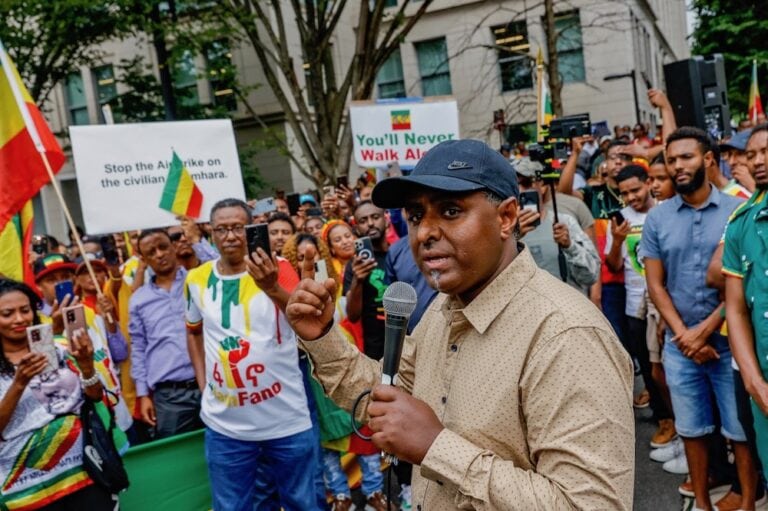(EFJA/IFEX) – On 1 April 2002, the Third Criminal Bench of the Federal High court ordered Melese Shine, editor-in-chief of “Ethiop” newspaper and magazine, to appear in court on 17 May for a third criminal charge that has been filed against him. Shine is presently remanded in custody because he has been unable to pay […]
(EFJA/IFEX) – On 1 April 2002, the Third Criminal Bench of the Federal High court ordered Melese Shine, editor-in-chief of “Ethiop” newspaper and magazine, to appear in court on 17 May for a third criminal charge that has been filed against him. Shine is presently remanded in custody because he has been unable to pay bail of 10,000 birr (approx. US$1,200) for a previous charge. That charge alleged that he violated Article 10(1) and (20) of Press Proclamation no. 34/1985 E.C. and Article 9(1) of special Criminal Code Proclamation no. 214/1974, which was issued under the military government twenty years ago. The amount of bail that will be imposed on Melese when he appears in court in May is not known.
In a separate case, Gezaw Taye Wordofa, editor-in-chief of “Lamrot” newspaper, is currently remanded in custody for failing to provide bail of 2,000 birr (approx. US$240), the amount imposed by the Federal High Court (see IFEX alerts of 26 and 20 March 2002).
In yet another case, Kidushabet Belachew, the editor-in-chief of “Mebrek” newspaper who has been charged with violating the Press Proclamation and the Penal Code, reported to the Central Investigation Department on 29 March and made a statement to the police. He was released upon providing bail of 5,000 birr (approx. US$600). Belachew was ordered to appear before the Second Criminal Bench of the Federal High Court on 23 April.
For the past two years, the act of summoning members of the free press to the Central Investigation Department, forcing them to give statements and bringing them to court on multiple charges filed against them by the prosecutor had subsided. Lately, however, these acts have resumed with greater intensity and vigour. Moreover, the amount of bail being imposed by the court has greatly increased. EFJA is greatly concerned over these recent developments. The organisation feels that unless the government and the pertinent authorities take the necessary measures to curb the exorbitant bail amounts imposed on the free press, its very existence and well-being, a key element in democratic societies, will be put into jeopardy.


